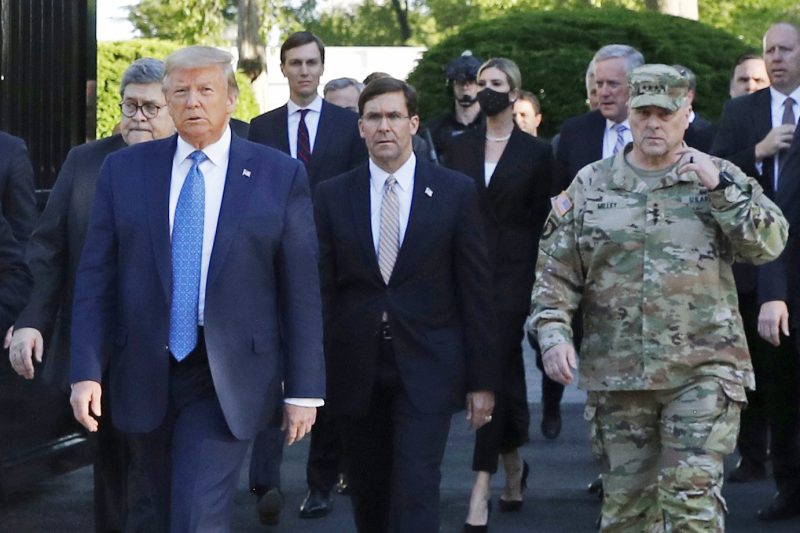
Who’s telling the truth? Former Trump aides label him a fascist, but Trump vehemently denies it. Who should we believe?
In a perplexing ideological divide that permeates modern American politics, the label of fascism has become a contentious point of debate. Recent developments have only amplified these disagreements, as former advisers to ex-President Donald Trump have come forward to levy accusations of fascist tendencies against him, while Trump himself vehemently denies these claims. This clash underscores the challenge faced by the public in determining whom to trust in the turbulent world of contemporary politics.
Trump’s presidency was marked by a brash and unorthodox style that polarized the nation. His America First rhetoric and disdain for traditional political decorum certainly raised eyebrows among both supporters and detractors. However, for some of his former advisers who have since distanced themselves from him, these actions were seen as more than just unconventional tactics – they were viewed as hallmarks of a fascist leader in the making.
Michael Cohen, Trump’s former personal lawyer, has been particularly vocal in his condemnation of the ex-president, accusing him of exhibiting fascist behavior during his time in office. Cohen has pointed to Trump’s cult of personality, his attacks on the media as fake news, and his disregard for democratic norms as evidence of these tendencies. Similarly, John Bolton, Trump’s former National Security Adviser, has raised concerns about the ex-president’s authoritarian impulses and ego-driven decision-making.
On the other side of the aisle, President Trump has consistently pushed back against these claims, asserting that he is not a fascist and lambasting his critics as politically motivated detractors. Trump argues that his policies were aimed at bolstering American interests and securing the nation’s borders, rather than fostering a dictatorial regime. Indeed, his supporters point to his focus on job creation, tax cuts, and deregulation as evidence of his commitment to traditional conservative values, rather than fascism.
So, in this cacophony of conflicting claims, whom should the public trust? The answer is far from simple. As with any political discourse, it is essential for individuals to critically assess the arguments presented and conduct independent research to arrive at an informed conclusion. While former advisers may offer insider perspectives, their own biases and motivations must also be considered. Likewise, Trump’s dismissals of these accusations should not be taken at face value, given his stake in defending his legacy.
Ultimately, the truth about Trump’s legacy and political leanings may lie somewhere in between the competing narratives. As the debate rages on, it is imperative for citizens to engage with a diversity of viewpoints, question sources of information, and hold public figures accountable for their actions. Only through this vigilant and discerning approach can we navigate the complex landscape of contemporary politics and make informed decisions about whom to trust.
